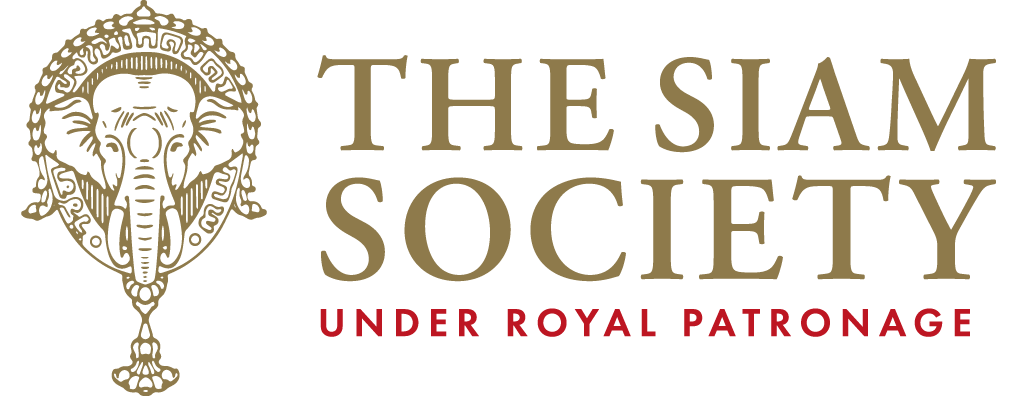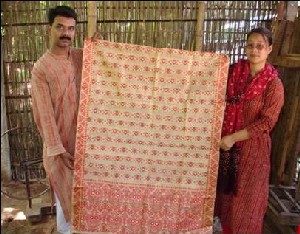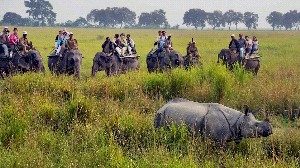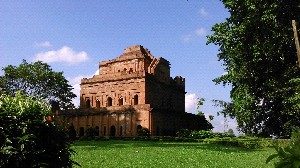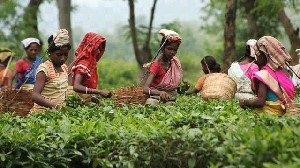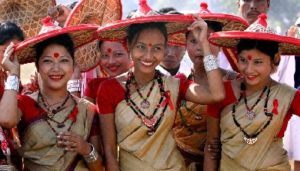A Visit to Assam
Assam is a Northeastern state in India and serves as the gateway to Northeast India. It shares international borders with Bhutan and Bangladesh and is surrounded by six other northeast states of India which are Meghalaya, Arunachal Pradesh, Nagaland, Manipur, Tripura, Mizoram. These seven states, known as the Seven Sister states, are isolated from the rest of India with the only access by land being the Siliguri Corridor (Chicken Neck) in Assam.
Assam is the land of red rivers and blue hills and comprises three main geographical areas: the Brahmaputra Valley which constitutes the expansive wingspan, the Barak Valley, and the intervening Karbi Plateau and North Cachar Hills.
Assam has a diversified background. The name “Assam” is derived from the term “Asom” which in Sanskrit means unequal or unrivalled. The uneven topography of the land, full of hills, plains and rivers might, therefore, contribute to her name. The Mongolian Ahom Dynasty that had ruled Assam by the name of Kingdom of Assam for more than six hundred years (C13th – 19th) might also be the cause for her name.
In the period of the Epics, Assam was known as “Kamarupa” or “Pragjyotish”. The population of Assam comprises of the migrants from Burma and China. They came into Assam after the mongoloid migration. They came from Punjab through Bihar and North Bengal. Thus, Assam presents a fusion of Mongol-Aryan culture. The early history of Assam is believed to be of the Varman dynasty. The reign of this dynasty extended from AD 400 to the 13th century. The Ahom ventured into Assam in about AD 1228. By the 15th century the kingdoms of Ahom and Koch were established. In the later part of the 18th century the Ahom Kingdom was weakened due to internal strife. The Burmese overran the political authority in Assam though invoking British intervention to subdue the Burmese. After a conflict between the Burmese and the English, peace was restored by the treaty of Yandaboo in 1826. The British then set out to organize the administration, transport and communication. Railways were constructed, tea plantations introduced, and coal and oil discovered.
The British ruled until 1947. With the independence of India, Assam became as a part of the Indian union.
Assam is a destination for history, culture and nature lovers. Various historical sites in Assam are influenced by Ahom dynasty and the Koch kingdom who ruled the region for many years. One of the major cultural change was brought by the Vaishnava movement. The native people of Assam are called Asomiya (Assamese), being a mixture of Mongoloid, Indo-Burmese, Indo-Iranian, and Aryan. Their culture has evolved through a long assimilation process of various races. Going by the facts, the state receives more rainfall than most parts of India. This rain feed the Brahmaputra river and help in the formation of a hydro-geomorphic environment in Assam throughout the year. Assam is gifted with lush green meadows, fertile plains near the enormous Brahmaputra river, the beautiful hills with wonderful tea plantation and rich flora and fauna.
Assam and tea… both are inseparable. Assam is the largest tea producer in the world with a share of more than 20% of the total world produce. It has around 765 big lush tea estates mostly owned by big companies. Its pleasant climate throughout the year makes Assam good for tourism. One-horned Indian rhinoceros are nearly extinct but are well conserved in Assam.
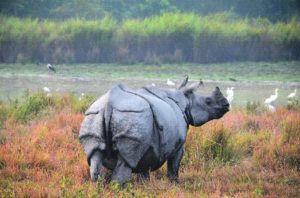
The Siam Society is organising a trip to visit some of the remarkable places is Assam such as Guwahati, the major gateway to the whole region. Majuli, the largest river island in South Asia on the Brahmaputra River; the island is famous for its Vaishnavite Satras. Kaziranga National Park, a UNESCO World Heritage Site, serves as one of the last remaining habitats of the great Indian one-horned rhinoceros. Sivasagar, the seat of the Tai Ahom Kingdom, Tai Phake village, Tai Turung village and Dibrugarh, renowned as the tea capital of India.
When
Leader
Dr Navamintr Vitayakul, Council Member of The Siam Society
Booking
Or contact Khun Supanut
supanut@siam-society.org
The tentative programme will be as follows:
Booking
THB 73,500 (THB 77,000 for non-members). Single room surcharge THB 10,500. A deposit of THB 30,000 and a photocopy of the passport must accompany the booking. Your reservation will be confirmed as soon as the deposit has been made. Payment in full is required 60 days before the start of the trip (i.e. by Saturday 16 November 2019).
Please pay by cash or cheque payable to ‘The Siam Society’. There is a 4% surcharge for credit/debit card payment to cover bank charges. Alternatively, you can deposit/transfer the money to the Siam Society travel account at the TMB Bank, Asoke Branch saving account no. 053-2-18000-7. Please fax or e-mail the deposit or transfer docket to us. In case the tour must be canceled due to insufficient participants, a full refund of the deposit will be made.
Includes/Excludes:
The contribution includes airfares, meals as mentioned in the program, accommodation for two persons per room, entrance fees, gratuities and other costs incurred to make this trip possible. It excludes visa fee (if any), personal expenses, personal beverages, etc.
To comply with payment and cancellation policies set forth by tour agencies, and to facilitate smooth working condition between The Siam Society and the tour agencies, please read carefully the revised cancellation policies stated below:
Cancellation charge:
60 days before the start of the trip: Deposit forfeited
60–30 days before the start of the trip: 50% of the tour cost
Less than 30 days or cancellation without notice: No refund
Your booking will not be confirmed until the deposit payment has been received. Please book your place as soon as possible. Please supply a copy of your passport with your booking.
The Siam Society reserves the right to change the programme as necessary. Seats are limited. Please book your place as soon as possible. For further information and bookings please contact Khun Prasert or Khun Supanut.
More upcoming study trips
-
 Uzbekistan: The Crossroads of the Silk Road Where History Meets CultureการศึกษาสัญจรFriday, 14 to Sunday, 23 March 2025
Uzbekistan: The Crossroads of the Silk Road Where History Meets CultureการศึกษาสัญจรFriday, 14 to Sunday, 23 March 2025 -
 Discover Sindh and the Ancient Civilisation of the Indus Valley, PakistanการศึกษาสัญจรSaturday 18 to Monday, 27 January 2025
Discover Sindh and the Ancient Civilisation of the Indus Valley, PakistanการศึกษาสัญจรSaturday 18 to Monday, 27 January 2025 -
 Exploring the Most Exquisite Rock-Cut Caves in Maharashtra, IndiaการศึกษาสัญจรTuesday 10 to Monday, 16 December 2024
Exploring the Most Exquisite Rock-Cut Caves in Maharashtra, IndiaการศึกษาสัญจรTuesday 10 to Monday, 16 December 2024
